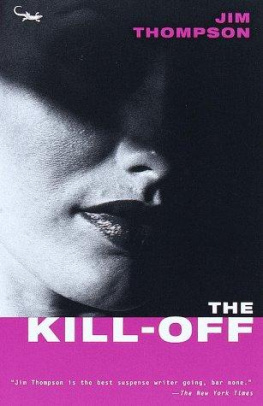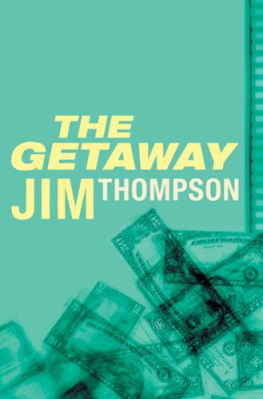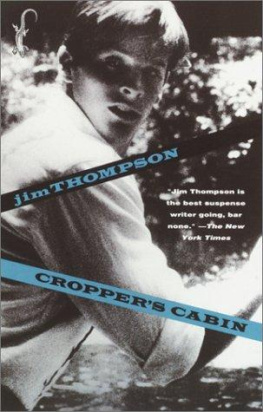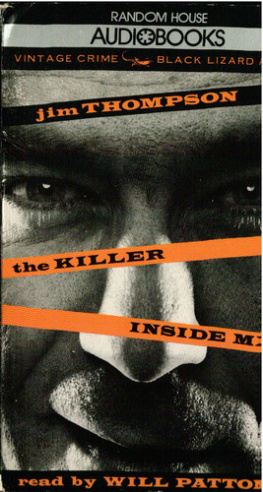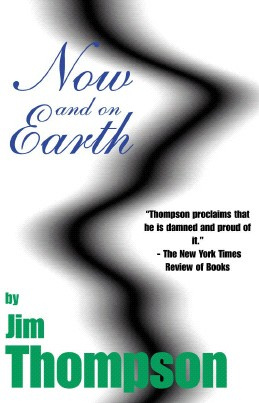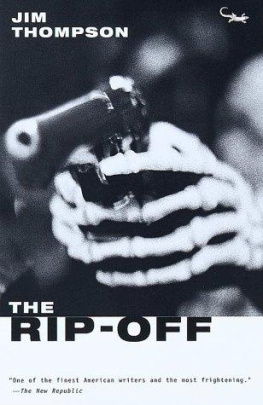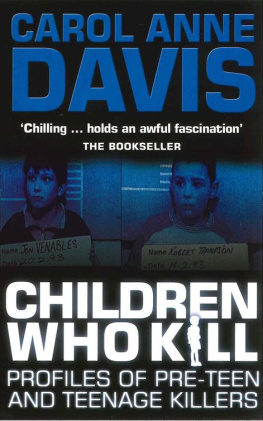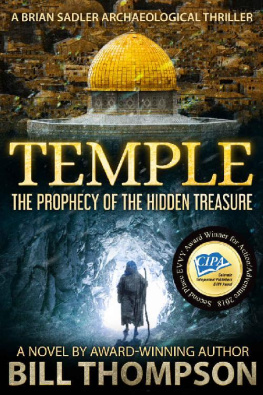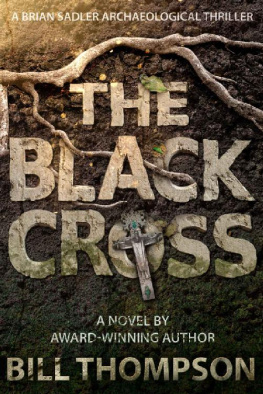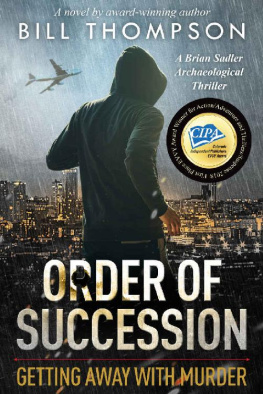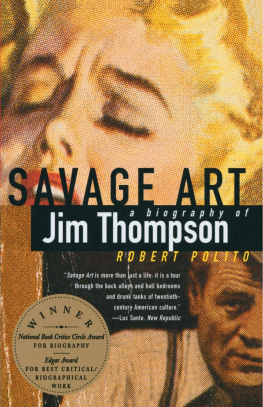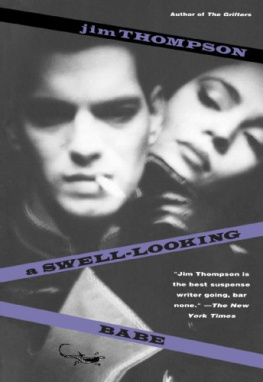Jim Thompson - The Kill-Off
Here you can read online Jim Thompson - The Kill-Off full text of the book (entire story) in english for free. Download pdf and epub, get meaning, cover and reviews about this ebook. year: 1999, publisher: Vintage, genre: Art. Description of the work, (preface) as well as reviews are available. Best literature library LitArk.com created for fans of good reading and offers a wide selection of genres:
Romance novel
Science fiction
Adventure
Detective
Science
History
Home and family
Prose
Art
Politics
Computer
Non-fiction
Religion
Business
Children
Humor
Choose a favorite category and find really read worthwhile books. Enjoy immersion in the world of imagination, feel the emotions of the characters or learn something new for yourself, make an fascinating discovery.
- Book:The Kill-Off
- Author:
- Publisher:Vintage
- Genre:
- Year:1999
- Rating:5 / 5
- Favourites:Add to favourites
- Your mark:
- 100
- 1
- 2
- 3
- 4
- 5
The Kill-Off: summary, description and annotation
We offer to read an annotation, description, summary or preface (depends on what the author of the book "The Kill-Off" wrote himself). If you haven't found the necessary information about the book — write in the comments, we will try to find it.
The Kill-Off — read online for free the complete book (whole text) full work
Below is the text of the book, divided by pages. System saving the place of the last page read, allows you to conveniently read the book "The Kill-Off" online for free, without having to search again every time where you left off. Put a bookmark, and you can go to the page where you finished reading at any time.
Font size:
Interval:
Bookmark:
Luane Devore made a specialty of being impetuous, bold, headstrong and-she thought-sultry.
Mostly, though It was Sunday, only two days after the season had opened, when Luane Devore telephoned. As usual, she sounded a little hysterical. As usual, she was confronted with a dire emergency which only I could handle. Significantly, however-or at least I thought it significant-she did not calm down when I told her to go to hell, and to stop acting like a damned fool.
"Please, Kossy," she burbled. "You must come! It's vitally important, darling. I can't talk about it over the telephone, but-"
"Why the hell can't you?" I cut in. "You talk about everything and everyone else over the phone. Now, lay off, Luane. I'm a lawyer, not a baby-sitter. I'm here on a vacation, and I'm not going to spend all my time listening to you moan and whine about a lot of imaginary problems."
She wept audibly. I felt a very small twinge of conscience. The Devore estate didn't amount to anything any more. It had been years since I'd gotten a nickel out of her. So well, you see what I mean. When people don't have anything-when they can't do anything for you- you kind of have to go a little easy on 'em.
"Now, take it easy, honey," I said. "Be a big girl for Kossy. The world ain't going to come to an end if I don't dash up there right now. It ain't going to kill you, is it?"
"Yes," she said. "Yes, it is!" And then she hung up with a wild sob.
I hung up also. I came out of the bedroom, crossed the living room and returned to the kitchen. Rosa was at the stove, her back turned to me. She was talking, ostensibly mumbling to herself but actually addressing me. It is a habit of hers, one she has resorted to more and more frequently during the twenty-odd years of our marriage. I listened to the familiar words bumloafertime-wasterthinks-nothing-of-his-wife-but and for the first time in a long time I was affected by them. I began to get sore-angry and sad. And a little sick on the inside. "So I'm sorry," I said. "She's a client. She's in trouble. I've got no choice but to see her." "A client, he says," Rosa said. "So, of course, everything else he must drop. She is his only client, is she not? His first case?" "With a good lawyer," I said, "it is always the first case. Don't make such a production out of it, dammit. I'll be back in a little while." "In a little while, he says," Rosa said. "In a little while, he was going to help with the unpacking. He was going to help clean up the cottage, and take his wife bathing and-"
"I will," I said. "Goddammit, you want me to put it in writing?"
"Listen to him," she said. "Listen to the great attorney curse at his wife. See how he acts, the great attorney, when it is his wife he deals with."
"Listen to yourself," I said. "See how you act."
She turned around unwillingly. I stood up and put on a performance, watching her face slowly turn red then white. I am pretty good at such mimicry. Painfully good, you might say. I have a talent for it; and when a man is only five feet tall, when he has had no formal law education-damned little formal education of any kind-he leaves no talent undeveloped.
"This is you," I said. "Mrs. Abie. Why don't you go on TV? Go into vaudeville? They love those characters."
"N-now-" she smiled weakly. "I guess I'm not that bad, Mister Smarty."
"Mister Smarty," I said. "Now, there's a good line. You just keep it up, keep building on that stuff, and we'll be all fixed up. We'll be getting a nice offer for our property."
"Maybe," she snapped, "we'd better not wait for an offer. If you're ashamed of your own wife, if you're so worried about what your friends may think of me-"
"What I'm ashamed of is someone that isn't my wife. This character you've slipped into. Goddammit, you're supposed to amount to something, and yet half the time you-"
I stopped myself short.
She said, "Listen to him, listen to the great attorney" And then she caught herself.
We stood staring at each other. After a long moment, I started to break the silence; and the first word was a swear word and the second one was an ain't. I broke off again. "Look at who's talking," I said. "Me, telling you how to behave!"
She laughed and put her arms around me, and I put mine around her. "But you're right, darling," she murmured. "I don't know how I ever got into the habit of carrying on that way. You stop me if I do it any more."
"And you stop me," I said.
She warmed up the breakfast coffee, and we both had a cup. Chatting and smoking a cigarette while we drank it. Then, I got the car out of the garage, and headed up the beach road toward town.
Manduwoc is a seacoast town, a few hours train-ride from New York City. It is too far from the city for commuting; there are no local industries. According to the last census, the population was 1,280 and I doubt that it has increased since then.
It used to be quite a resort town, back before the war, but the number of summer visitors has declined steadily in recent years. The natives got a little too independent; they leaned a little too heavily on the gypping. So, what with so many places closer to the population centers, Manduwoc began to go downhill.
The largest hotel here has been boarded up for the past two summers. Some business establishments have closed down permanently; and at least a third of the beach cottages are never rented. There is still a considerable influx of vacationers, but nothing like there used to be. Practically the only people who come here now are those who own property here. People who, generally speaking, are out to save money rather than spend it.
The town proper sits a few hundred yards back from the ocean. Built around a courthouse square, it is adjoined, on the land side, by an area of summer estates, and, on the sea side, by the usual resort installations. These last include the aforementioned hotels and cottages, a couple of seafood restaurants, a boat-and-bait concession, a dance pavilion and so on.
Our cottage, which we own, is about three miles out. The others-the rent-cottages, I should say-are all close-in. I was approaching them, row upon row of identical clapboard structures, when a man stepped out onto the road and began to trudge toward the village. He was tall, stoop-shouldered, very thin. He had a mop of gray-black hair, and his angular, intelligent face was almost a dead white.
I pulled the car even with him and stopped. He went on walking, looking straight ahead. I called to him, "Rags! Rags McGuire!" And, finally, after another hail or two, he turned around.
He was frowning, in a kind of fiercely absent way. He came toward me slowly, his features twisted in that vacant scowl. And, then, suddenly, his face lit up with a smile of friendliness and recognition.
"Kossy! How are you, boy?" He climbed into the seat with me. "Where you been hiding yourself?"
I said that Rosa and I were just getting settled down; we'd be dropping by the pavilion as soon as we were finished. He beamed and slapped me on the back, and said that was the Kossy kid. And then he went completely silent. It wasn't an awkward silence. Not seemingly, that is, on his part. But there was something about it, something about his smile-and his eyes-that made me more ill at ease than I have ever been in my life.
"I don't suppose-" I hesitated. "I mean, is Janie with the band this summer?"
He didn't say anything for several seconds. Then, he said no, she wasn't with him. He had a new vocalist. Janie was staying in the city with the kids.
"I figure that gives her enough to do," he added. "Just bringing the kids up right, y'know. After all, you take a couple of boys that age, and a woman don't have time to- Yeah? You were saying, Kossy?"
Font size:
Interval:
Bookmark:
Similar books «The Kill-Off»
Look at similar books to The Kill-Off. We have selected literature similar in name and meaning in the hope of providing readers with more options to find new, interesting, not yet read works.
Discussion, reviews of the book The Kill-Off and just readers' own opinions. Leave your comments, write what you think about the work, its meaning or the main characters. Specify what exactly you liked and what you didn't like, and why you think so.

